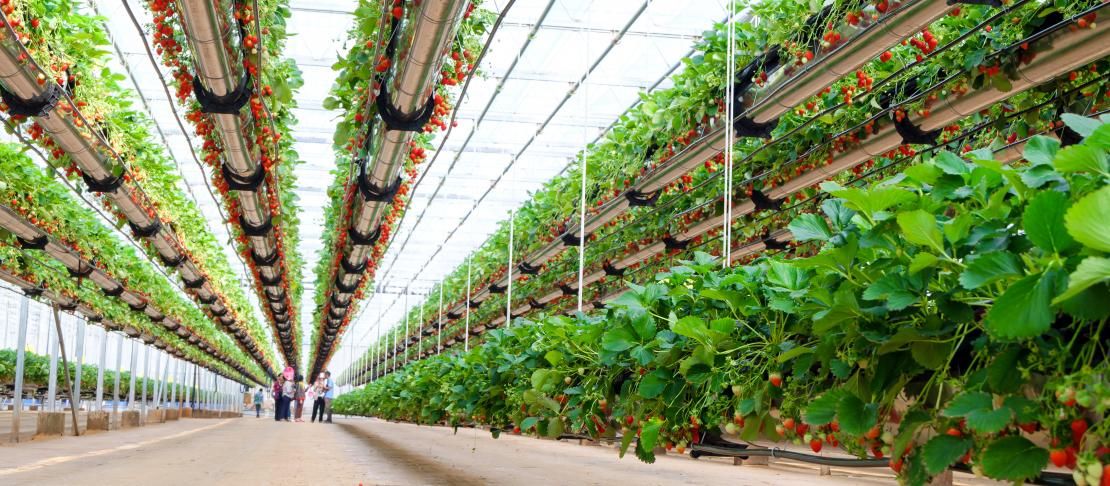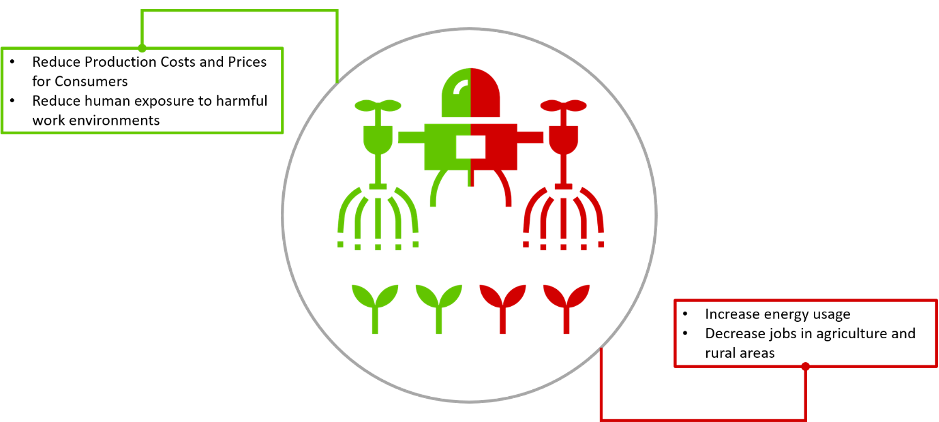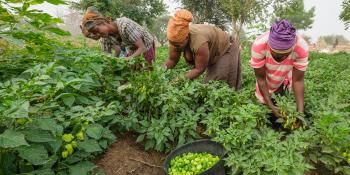The pros and cons of emerging technology in our food system

Our food systems are failing us and the planet; they are not effectively feeding or nourishing us. Unhealthy food is the leading cause of non-communicable diseases worldwide, and under-nutrition continues to be a substantial issue in many parts of the world.
Simultaneously, our food systems are failing the planet. Food production is the single biggest driver of multiple environmental pressures including biodiversity loss, soil degradation, and pollution of rivers and oceans. The food system also contributes 20-30% of global greenhouse gas emissions.
Humanity faces the grand challenge of reconfiguring food systems to deliver healthy diets that are accessible to all people while safeguarding planetary health.
New technology can improve food systems, but cause unintended consequences from CSIRO on Vimeo.
It’s all interlinked: Fixing food systems, and the challenges facing humanity and the planet
Producing more and healthier food more sustainably will not, on its own, ensure human well-being. Other crucial social and environmental challenges must also be addressed such as reducing poverty, providing education and healthcare for all, and conserving biodiversity.
These interlinked challenges are embodied in the 2030 Agenda for Sustainable Development, aiming to achieve 17 Sustainable Development Goals that include No Poverty (Goal 1), Zero Hunger (Goal 2) and sustainable Life on Land (Goal 15), by 2030.
Many of the Sustainable Development Goals are inherently interlinked. There are many synergies between the different goals but also potential trade-offs that need to be managed. We need to find the best way of achieving these goals simultaneously.
New technology can help…but at what cost?
New technology and innovation, be it the tractor or the freezer, have transformed the ways we grow, process, and consume food time and time again. Emerging technologies have great potential to improve our food system for the better, but they can also have unintended consequences.
In a study recently published in The Lancet Planetary Health, an international team of scientists identified the potential impacts and interactions of emerging food system technologies in relation to the Sustainable Development Goals.
We identified that while new technologies can help fix some issues with the food system, they also have far-reaching impacts that cause disruption and unintended consequences, some beneficial and some not, for achieving the Sustainable Development Goals.”
Professor Mario Herrero, lead author of the paper and Chief Research Scientist at the Commonwealth Scientific and Industrial Research Organisation (CSIRO)
For example, the study considered potential impacts of increased automation in food production on society and the environment. While automation may reduce the labor and agrochemical costs of food production and processing, it may increase energy costs. Similarly, automation may reduce human exposure to harmful agrochemicals and dangerous equipment, but it may also decrease the number of jobs in agricultural production, resulting in more urban migration and greater urban unemployment and poverty, and ultimately in social conflict in the absence of adequate social support.

Figure 1. Examples of positive and negative trade-offs related to the use of robotics and automation in agriculture.
The study also highlights the interlinkages associated with innovation. A host of socio-cultural, behavioral, economic, and political factors can either enable or inhibit the uptake of new technology and direct its use towards or away from more socially and environmentally acceptable outcomes.
The authors explored the potential impacts of emerging technologies, identified by a companion study by Herrero et al. (2020) published in Nature Food, with respect to the Sustainable Development Goals.
“Our analysis found that while new technologies may help achieve many of the Sustainable Development Goals, such as SDGs 2 (Zero hunger), 3 (Good health and wellbeing) and 15 (Life on land), they could compromise other goals, such as SDG 8 (Decent work and economic growth) and 10 (Reduced inequality),” said Dr Philip Thornton, co-author and Flagship Leader for the CGIAR Research Program on Climate Change, Agriculture and Food Security (CCAFS).
The authors make clear that these results are indicative only, but they highlight that change and innovation have always come with trade-offs that that need to be managed.

"We face a challenge of accelerating and scaling a global transition to sustainable food systems. This is nothing less than a new agricultural revolution. Food system innovations will be key to succeed. But they need to be guided by science-based targets to avoid trade-offs and rebound effects," said Professor Johan Rockström, co-author and Director of the Potsdam Institute for Climate Impact Research and Professor in Earth System Science at the University of Potsdam. "Now is the time to start scaling the great spectrum of existing sustainable food innovations around the world, and learn by doing, to rapidly establish what works and what doesn't."



